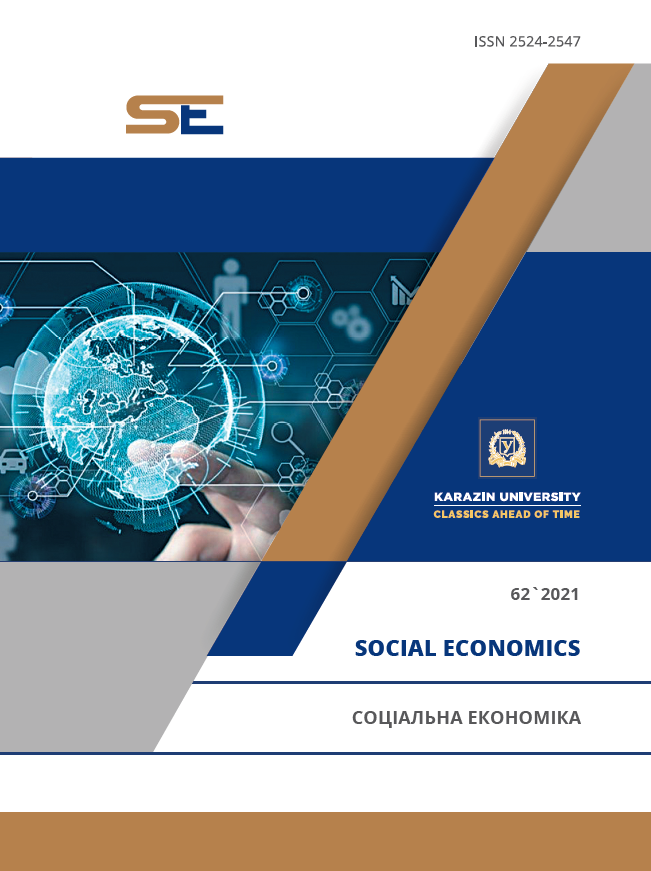ANALYSIS OF STUDENTS’ ATTITUDES TOWARDS E-LEARNING
Abstract
Universities around the world have managed to evolve knowledge production from the physical classroom to virtual education due to the COVID-19 pandemic. Similarly, the vast majority of students in various educational institutions around the world have changed their learning styles to digital learning education. With the regard of the concept that learner’s attitude and their learning outcomes have interrelated we have a question that how was the students’ attitude developed in the relation of e-learning outcomes. Based on this rational this study focuses on investigating students’ attitude through the online education. In this regard, research objectives were designed that 1) to study online learning and Education 4.0; 2) to determine the needs of digital learning, academic motivation and learning outcomes via e-learning; 3) to analyze students’ attitudes towards online education. The research data were collected through the tools of questionnaire, observation, covering 380 university students as casual informants and sample interviews from 36 students as key informants in the duration of the academic year 2019-2020. With the analysis techniques, the collected data were categorized according to the objective two in terms of typology such as general information of respondents, E-learning necessities and tools, E-learning involvements, students’ attitudes and analyzed by SPSS programs to explore research results systematically. The variables of learning involvement and students individual attitudes were analyzed with crosstab forms to make correlative results. The results of the study indicated that the most students spent 5-12 hours in digital learning, 60% of the respondents have agreed that the E-learning platforms were useful, however, 73.7% of the research informants reported that the learning outcomes were in average. Finally we reached consequence that students’ attitudes, in particular individual approach and diligence were developed during online education. The findings of the research were supported by the Ground Theory and Learning Theories and presented by descriptive methods. The research reliability was tested by the triangulation method in terms of cognitive, effective and behavioral dimensions of the attitudes.
Downloads
References
Prasetyo, A. R., Nurtjahjanti, H., & Nur Ardhiani, L. (2021). Impact of Changes in Teaching Methods During the COVID-19 Pandemic: The Effect of Integrative E-Learning on Readiness for Change and Interest in Learning Among Indonesian University Students. International Review of Research in Open and Distributed Learning, 22(2), 87-101. doi: https://doi.org/10.19173/irrodl.v22i2.5143.
Azimi, H. M. (2014). E-Learning Needs Assessment among students in colleges of education. The Malaysian Online Journal of Educational Technology, 2(1), 11-22. Retrieved from https://www.mojet.net/ParticleDetail?id=213.
Boca, G. D. (2021). Factors Influencing Students’ Behavior and Attitude towards Online Education during COVID-19. Sustainability, 13(13), 7469. doi: https://doi.org/10.3390/su13137469.
Çevik, M., & Bakioğlu, B. (2021). Investigating students’ E-Learning attitudes in times of crisis (COVID-19 pandemic). Educ Inf Technol. doi: https://doi.org/10.1007/s10639-021-10591-3.
Herguner, G., Son, S. B., Herguner Son, S., & Donmez, A. (2020). The effect of online learning attitudes of University students on their online learning readiness. Turkish Online Journal of Educational Technology, 19(4), 102-110. Retrieved from http://www.tojet.net/articles/v19i4/1949.pdf.
Halili, D. S. (2019). Technological advancements in education 4.0. The Online Journal of Distance Education and e-Learning, 7(1), 63-69. Retrieved from https://tojdel.net/journals/tojdel/articles/v07i01/v07i01-08.pdf.
Harandi, S. R. (2015). Effects of e-Learning on Students’ Motivation. Procedia - Social and Behavioral Sciences, 181, 423-430. Retrieved from http://www.sciencedirect.com/science/article/pii/S1877042815031985.
Hussin, A. A. (2018). Education 4.0 Made Simple: Ideas For Teaching. International Journal of Education & Literacy Studies, 6(3), 92-98. doi: http://dx.doi.org/10.7575/aiac.ijels.v.6n.3p.92.
Valantinaitė, I., & Sederevičiūtė-Pačiauskienė, Ž. (2020). The Change in Students’ Attitude towards Favourable and Unfavourable Factors of Online Learning Environments. Sustainability, 12(19), 7960. doi: https://doi.org/10.3390/su12197960.
Rhema, A., & Miliszewska, I. (2014). Analysis of student attitudes towards e-learning: The case of engineering students in Libya. Informing Science and Information Technology, 11, 169-190. Retrieved from http://iisit.org/Vol11/IISITv11p169-190Rhema0471.pdf.
Lee, M.-Ch. (2010). Explaining and predicting users’ continuance intention toward e-learning: An extension of the expectation–confirmation model. Computers & Education, 54(2), 506-516. doi: https://doi.org/10.1016/j.compedu.2009.09.002.
Çevik, M., & Bakioğlu, B. (2021). Investigating students’ E-Learning attitudes in times of crisis (COVID-19 pandemic). Educ Inf Technol. doi: https://doi.org/10.1007/s10639-021-10591-3.
Ullah, O., Khan, W., & Khan, A. (2017). Students’ Attitude towards Online Learning at Tertiary Level. PUTAJ – Humanities and Social Sciences, 25(1-2) (Special Issue-Media Matters), 63-82. Retrieved from https://www.academia.edu/35679975/Students_Attitude_towards_Online_Learning_at_Tertiary_Level.
Pange, A., & Pange, J. (2011). Is E-learning Based On Learning Theories? A Literature Review. International Journal of Educational and Pedagogical Sciences, 5(8), 932-936. doi: https://doi.org/10.5281/zenodo.1079602.
Puncreobutr, V. (2016). Education 4.0: New Challenge of Learning. Journal of Humanities and Social Sciences, 2. Retrieved from https://www.semanticscholar.org/paper/Education-4.0%3A-New-Challenge-of-Learning-Puncreobutr/ /9da555cb83b2f00ea7931e5a6c38953d836f19da#paper-header.
Peytcheva-Forsyth, R., Yovkova, B., & Aleksieva, L. (2018). Factors Affecting Students’ Attitudes Towards Online online learning - The case of Sofia University. AIP Conference Proceedings, 2048, 020025. doi: https://doi.org/10.1063/1.5082043.
Destianingsih, A., & Satria, A. (2020). Investigating Students’ Needs for Effective English Online Learning During Covid-19 for Polbeng Students. ELT-Lectura, 7(2), 147-153. doi: https://doi.org/10.31849/elt-lectura.v7i2.4657.
Liaw, S., Huang, H., & Chen, G. (2007). Surveying instructor and learner attitudes toward e-learning. Comput. Educ., 49, 1066-1080. doi: https://doi.org/10.1016/j.compedu.2006.01.001.
Muthuprasad, T., Aiswarya, S., Aditya, K. S., & Girish, K. Jha. (2021). Students’ perception and preference for online education in India during COVID -19 pandemic. Social Sciences & Humanities Open, 3(1), 100101. doi: https://doi.org/10.1016/j.ssaho.2020.100101.
Mehra, V., & Omıdıan, F. (2012). Development An Instrument To Measure University Students’ Attitude Towards E-Learning. Turkish Online Journal of Distance Education, 13(1), 34-51. Retrieved from https://dergipark.org.tr/en/pub/tojde/issue/16899/176118.




